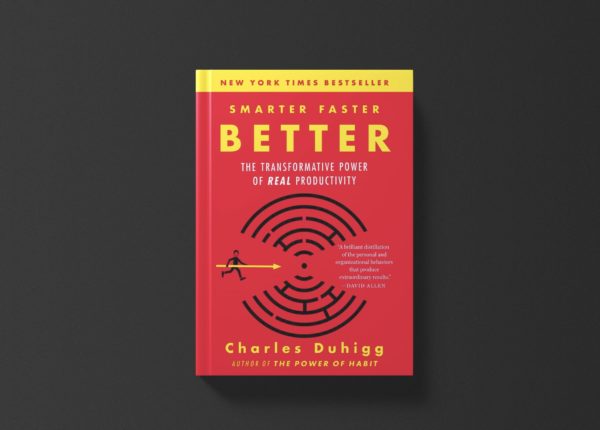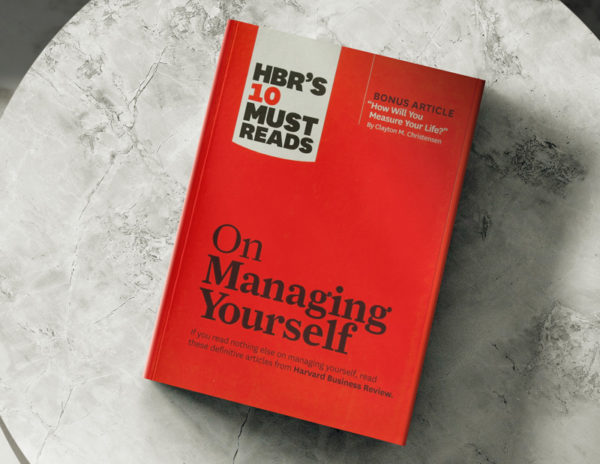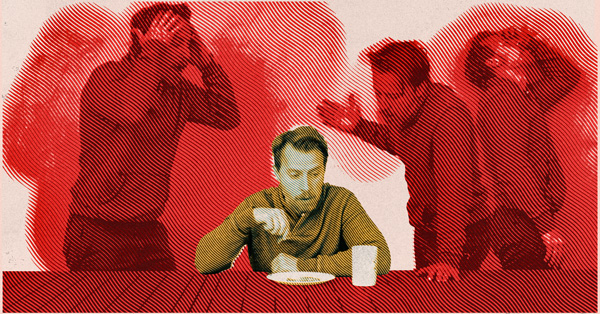The holidays are the most wonderful time of the year. Family, food, presents, and for most of us, a much-needed break from work.
They’re also the worst time of the year.
12+ hours of darkness, gray skies, soul-crushing travel, frigid temps, stress over gift-buying, and enough overeating to turn your blood sugar into a roller coaster.
And then there’s family. You know, those people you would break up with if you weren’t related to them.
Everyone Deals With Something Over The Holidays
Maybe you get along great with your family. Or don’t struggle with holiday excess when it comes to food or booze. Perhaps you have plenty of money in the bank and can afford to be as generous as you want.
But the fact is, everyone feels some sort of holiday pressure. The American Psychological Association found that positive holiday emotions like love were often accompanied by feelings of fatigue, stress, irritability, bloating, and sadness. And a survey by staffing firm Accountemps found that 35% of respondents were more stressed over the holidays than they were during actual work.
This year, instead of reacting, arm yourself with the tools to be proactive.
Don’t Just Get Through The Holidays … Own Them
Every challenge holds a kernel of opportunity. Whether it’s the family argument that happens every year, or the financial pressure you feel from having to fill stockings for 36 extended family members on your partner’s side, it’s important to remember: you can choose how to approach these holiday landmines.
We’ve compiled eight of the most common holiday stressors with practical, actionable suggestions for how to tackle them.
Happy holidays, and good luck.
Dealing With Difficult Family
Where would we be without family? Family supports, nurtures, and defines us … but that doesn’t make them easy.
Unresolved childhood or intra-family issues manifest during the holidays for the simple reason that all the stakeholders – and the simmering emotions – are in close proximity for a few days. Rather than getting caught in a familiar cycle of escalation and recrimination, try something different this year: nonviolent communication.
Nonviolent Communication is an approach to talking about difficult things (with difficult people!) that’s been around for over 50 years. Created during the tumult of school integration in the 1960s, the goal of psychologist Marshall Rosenberg’s book is both simple and revolutionary: move past ego-driven, hurtful, and “violent” words to communicate more effectively.
If you’re not into reading, snag the audiobook from your local library or from Audible with a 30-day free trial and listen to it on the plane ride.
Staying Motivated Through The Winter Blues
If you struggle with motivation during the holidays, it’s a great opportunity to seek inspiration from the latest science of productivity.
Charles Duhigg, famous for The Power of Habit, is back with a book on the neuroscience, psychology, and social anthropology of productivity. Smarter Faster Better: The Transformative Power of Real Productivity tells a series of gripping stories about how teams and individuals have shaken up routine to excel at their goals.
If you’re looking for something a bit more clinical, Harvard Business Review’s seminal collection of 10 articles on how to manage yourself is a winner.
What If You’re Worried About Your Mental Health?
Busy holiday schedules, cold weather, and soul-crushing darkness can cause a very normal dip in motivation – but for many, the impact is more profound.
Studies have shown that cold, dark weather can negatively impact everything from memory and creativity to serotonin production in the brain.
Seasonal Affect Disorder is real and requires treatment. If you experience a serious depressive episode each winter, speak to your doctor and check out this post on the history, science, and treatment of S.A.D.
If your winter blues lingers longer than two weeks you may be experiencing depression or anxiety that requires treatment, according to the American Psychological Association.
If you’re feeling bad but not sure how seriously to take it, you can always call the National Alliance on Mental Health hotline to receive free, confidential advice. Just call 1-800-950-NAMI (6264).
Holiday Overeating
Holiday food is amazing. Holiday overeating … less so. Humans are hardwired to seek out calorie-dense foods like fatty ham, buttery mashed potatoes, and figgy pudding (if you’re a 15th century duke).
Holiday overeating is such a tradition that for most people it’s not even a problem; it’s a point of pride. If you’re trying, however, to lose weight, keep it off, or simply live well, ritualized overeating can be a big problem.
The key to fighting holiday overeating is intention. Don’t just wing it – apple pie has a way of overcoming vague, undefined goals of “not having too much.” Once you’ve decided how you want to eat, check out these two interesting resources for inspiration:
NPR’s Life Kit podcast talks about the latest science on dieting – and how it’s more important to focus on behavioral goals than specific weight goals.
Fasting diets have swept the internet in the last year. Check out a talk by the most prominent – and science-based – advocate for fasting, Dr. Valtar Longo.
Dealing With Holiday Expectations
We’re supposed to be happy over the holidays, but shopping, family needs, and the constant loop of dreadfully cheering holiday music all conspire to make this season overwhelming. In fact, a 2015 survey by Healthline found that 50+% of respondents felt mild to major holiday-related stress.
Expectations are a major fuel for that stress. In a season when it’s often difficult to feel good, the pressure to be happy can become a source of angst in itself. If you’ve ever felt like your friends or family expect you to perform happiness during the holidays, you know what we’re talking about.
If you struggle with holiday expectations, check out this post from meditation teacher (and former CEO of Esquire magazine) Phillip Moffit. He identifies the causes behind the “tyranny of expectations” and how to cope with it.
Holiday Financial Pressure
Survey after survey has found that the biggest source of holiday stress is financial. Simply put: people are worried about how they’re going to afford presents, big meals, and travel to see family.
If you’re in the same boat, know this: you’re not alone. Here at Primer we’ve devoted a lot of time and many, many electrons to helping folks get their budget under control,
If you need to get a handle on your budget, check out our comprehensive budget advice.
If you’re looking for personal finance hacks to make money by saving money, take a peek at our money hacks section.
If you need to be making more money at work, our salary negotiation and career experts have you covered.
Drinking Too Much
All of the holiday stressors above can lead people to seek escape at the bottom of a bottle.
If you’re concerned about managing a challenging holiday – and worried you may lean on alcohol too hard – check out this letter from a Primer reader concerned about his drinking … and what you can do about it.


















